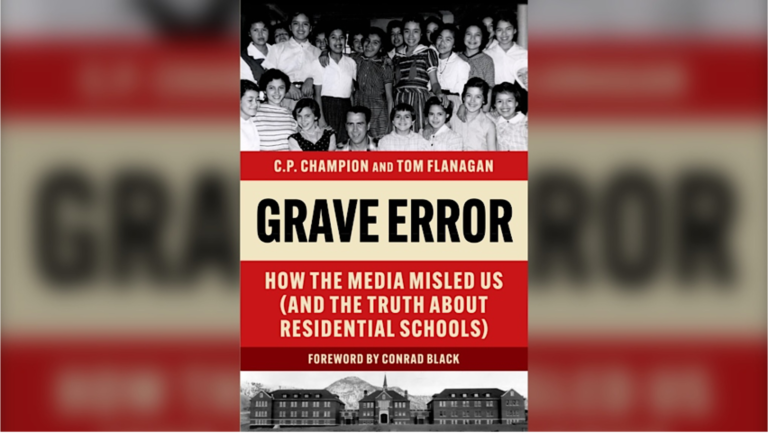Truth is so obscure in these times, and falsehood so established, that, unless we love the truth, we cannot know it.
— Blaise Pascal
Tolerance is contemporary Western society’s foremost professed virtue. It would be difficult to find anyone proclaiming themselves otherwise. Tolerance has been described as a “central idea in modern liberal theory and practice” and one of several “universal values necessary for democracy.” Less widely recognized, perhaps, is that tolerance goes hand-in hand with another contemporary Western doctrine: relativism. As Allan Bloom famously wrote in the introduction to The Closing of the American Mind in 1987, “There is one thing a professor can be absolutely certain of: almost every student entering the university believes, or says he believes, that truth is relative…Relativism is necessary to openness; and this is the virtue, the only virtue.”
David Copp, a philosophy professor at the University of Florida, offered a laconic summary of the connection between relativism and tolerance, emphasizing the primacy of relativism in giving rise to tolerance:
“There are significant moral disagreements between people of different cultures. When we realize this, we can begin to think that our ethical ideas reflect nothing more than our own culture. And of course, our culture is only one of many. This thought can lead us to cultural [and moral] relativism – the conclusion that the moral frameworks of different cultures are ‘equally valid.’ It can then take us to the further conclusion that we ought to be tolerant of behavior and beliefs that reflect moral cultures different from our own. [Emphasis added]”
Such a line of thinking, preached in one form or another by almost every politically correct educator and teacher, is widely accepted among Millennials and Gen-Zs today, indicating its robustness and longevity. From the time of Bloom’s book’s publication, relativism and its sister-concept tolerance have penetrated nearly all aspects of our life. In the end, living in a free and multicultural society, who wants to have their opinions or freedoms limited? Hence, we tend to believe it’s wrong to limit the freedoms of those with whom we disagree. At least, that’s what we say we believe.

Attempts to counter the twin doctrines of relativism and tolerance have been made more difficult by the fact that most such arguments are theological in nature or at least depend on an explicit appeal to God. Further, the people attempting to bring this argument forward are themselves often religious figures or theologians. In today’s intellectual climate, such modes of argumentation – and, often, those delivering them – are usually dismissed or met with derision rather than sincere counter-argument. It is easy to see why they hold little appeal to Millennials and Gen-Zs, who are most likely to be atheist and, even if they believe vaguely in some kind of higher power, don’t see it as relevant to political or intellectual discussions.
A wholly different strategy is required to gain the ear of today’s audiences – a university-educated barista, for example, someone who might declare that, “All experiences and opinions are valid and I don’t subscribe to any particular truth.” In other words, the confirmed tolerant relativist. Such an audience calls for an entirely secular argument, one not grounded in religion or requiring direct appeal to a transcendent authority. Is such an argument feasible?
The Shades of Relativism
Relativism implies that there is no absolute truth; instead there are many truths that an individual or culture may choose to embrace. In relativism, “what’s true” is replaced by “what’s true for me/my culture.” This suggests the nature of reality itself is subjective, and raises one’s personal preferences and feelings (or those of one’s group) to pre-eminence over objective facts and absolute terms.
Instead of being discovered and learned, truth, including moral truth, becomes a subject of personal invention or imagination. This changes human relationships and erodes societal standards. “Who are you to judge or tell me what’s right?” is a frequent retort of relativists – including some who may not even be aware they are practising relativism – implying there is no moral standard on which a behaviour or thought can be evaluated.
To suggest that Western civilization has contributed more to human progress than another civilization is to commit a great blasphemy in today’s terms. It is therefore wrong – ‘Eurocentric’ – to prioritize in a college or school curriculum the study of classical works of Western civilization over works of other cultures.
Despite the ongoing absorption of relativism by university students and much of the governing elite, it still appears that the rest of society is not ready to take the plunge into full moral relativism. Experience and common sense would warn that to embrace moral relativism is to step on a dangerous path. To conclude that there is no difference in moral significance and lifestyle between, say, a mass murderer and one who cares for the homeless is both absurd and precarious. To allow one’s kids to steal whatever they need from one another because, hey, who is a mere parent to judge, would cause chaos in the household. Likewise, very few people, if given the basic facts, would argue that the Soviet Communist regime and Western democracies left similar legacies.

In contrast to moral relativism, cultural relativism finds far more supporters, especially in officially multicultural societies like our own. Absolute terms such as truth, excellence and greatness all exist relative to an individual culture, the argument goes. To suggest that Western civilization has contributed more to human progress than another civilization (let alone all others) is to commit a great blasphemy in today’s terms. It is therefore wrong – “Eurocentric” – to, among many things, prioritize in a college or school curriculum the study of classical works of Western civilization over works of other cultures. And before long in any such conversation, the terms “racism” or “white supremacy” are deployed to silence any who might continue to claim that the West has produced unique ideas that became of universal benefit to humanity.
According to George Reisman, Professor Emeritus of Economics at Pepperdine University, the ongoing trend towards undermining Western and “Eurocentric” values is misguided. It implies there is no difference between the moral, economic and scientific accomplishments of various cultures. In his view, by contrast, history and global experience suggest Western civilization to be “incomparably the greatest civilization which has ever existed, and which, until fairly recently, had repeatedly been carried to its…highest points,” even in the sight of its objective flaws. (See this C2C article for a related discussion.)

Among the many data points in support of Reisman’s proposition, there would otherwise have been no profound reason for tens of millions of people in developing countries to leave their homelands, abandoning family, familiarity and often livelihoods, sometimes risking their very lives, in order to start afresh in the West. In 2020, for example, the U.S. and Germany were the two most popular immigration destinations. Nor would cumulatively hundreds of corrupt, kleptocratic and/or warlike tyrannies insist they are “democratic” and maintain sham trappings of Western governance and other institutions.
And yet virtually the West’s entire intellectual class rejects the mountains of related evidence and takes the opposite position. As Reisman poses:
“The equivalence of all cultures, the equivalence of civilization and savagery, is the avowed claim of the doctrine of cultural relativism, which has long been accepted by practically the whole of the educational establishment. It in turn is a consequence of the still older, more fundamental doctrine that there is no objective foundation for values – that all value-judgments are arbitrary and subjective.”
One can therefore see how the seeming division between moral and cultural relativism is actually arbitrary and ultimately irrelevant; they are entwined concepts. They both prevent one from making interpersonal and cross-cultural judgments. But such judgments are necessary for many reasons, from choosing a spouse to landing a job, from judging a political candidate to forming economic relationships. And perhaps above all, to be able to live a free, meaningful life, making choices conducive to both personal and societal progress. And what is the standard against which such progress is measured? It is truth.
Truth, epistemological or moral, is not subject to culture-related beliefs and attitudes. It finds no ownership within a culture or society but belongs to anyone who chooses to embrace it. The law of universal gravitation is not British even though Isaac Newton who revealed it was an Englishman. Likewise, an understanding of how two cells combine and divide to give rise to a human being is not tied to a specific culture but is universally accessible and universally applicable.

Yet to reject particular knowledge just because it happens to have a Western origin – and to deliberately remove it from a curriculum for that reason – is itself racist. As Reisman suggests, it reduces a matter of intellect and understanding to one of racial or ethnical membership. The doctrine of relativism thus ends up practising that which it allegedly seeks to prevent.
When it comes to evaluating the morals and achievements of various societies, it is truth and its intrinsic characteristic, objectivity, that allow us to set aside cultural prejudice. If truth is upheld as a presiding principle, then we are not bound to personal bias or preferences and our views are not formed by group membership. Consequently, we can condemn both American slavery and headhunting in Africa. We seek and embrace truth and excellence wherever we find it, even if Jerusalem in 1000 BC would contain more of it than modern-day Hollywood. But if there is no truth – an external standard of knowledge and morality – then nothing within any culture can be judged.
A Battered and Tarnished Virtue
The moral complications stemming from a relativistic worldview have certainly not stopped it from thriving. For its success we can likely credit its sister-virtue – tolerance.

Because morality (along with truth itself) is individual and subjective, relativists argue, we need to tolerate the attitudes and opinions of others and not pass any judgment. But how logically coherent is such a proposition? It is not difficult to see that it is actually self-refuting. By proclaiming tolerance – “we ought to tolerate the views of those we don’t agree with” – relativists establish their own tacit benchmark of morality. To say “no view is absolutely true” while also believing “my view that no view is absolutely true is absolutely true” is logically inconsistent, self-contradictory and self-falsifying. Such a position is morally obliging and, thus, non-relativistic.
In short, relativists violate their principle of tolerance when they begin imposing their relativistic views on those who do not share them. Relativists have a marked habit of tolerating only those who embrace the same attitude as theirs. And when someone disagrees, a name-calling of such nature as “intolerant,” “bigoted” or “prejudiced” often follows. Watch-out, tolerance demands a verdict!
But what does it even mean to be tolerant? Francis J. Beckwith and Gregory Koukl in their 1998 book Relativism: Feet Firmly Planted in Mid-Air present a convincing argument that tolerance, despite its seemingly virtuous and intellectually attractive flair, is actually impossible to practice in its complete sense. To see why this is so, let’s start with the definition.
Tolerance as properly defined only applies to situations of disagreement. Note that the definition does not include approving of or liking, much less embracing or celebrating, that which is tolerated. As Beckwith and Koukl accurately point out, this understanding has been lost in modern debate.
According to the Oxford English Dictionary (under Google search), tolerance means “the ability or willingness to tolerate [to allow the existence, occurrence, or practice of, without interference] opinions or behaviour that one dislikes or disagrees with.” To be tolerant, in other words, is to allow or permit something that one actually thinks is wrong. Disagreement is thus one essential component of tolerance, as we do not need to tolerate that with which we agree.
Hence, tolerance as properly defined only applies to situations of disagreement. (Note that the definition does not include approving of or liking, much less embracing or celebrating, that which is tolerated.) As Beckwith and Koukl accurately point out, this understanding has been lost in modern debate. The essential component of disagreement has been removed. Thus, if one now happens to disagree with another, the former is labelled “intolerant.” But in order to exercise tolerance as rightly understood, one has to first think another is wrong. It is a Catch-22. Beckwith and Koukl therefore reason that in its complete definition, “true” tolerance is unattainable.
 Catch-22: In their book Relativism: Feet Firmly Planted in Mid-Air, Francis J. Beckwith (top right) and Gregory Koukl (bottom right) show how the established understanding of tolerance was modified to remove its essential element – disagreement. Without disagreeing, one cannot be tolerant, but in today’s debate mere disagreement is labeled “intolerance.”
Catch-22: In their book Relativism: Feet Firmly Planted in Mid-Air, Francis J. Beckwith (top right) and Gregory Koukl (bottom right) show how the established understanding of tolerance was modified to remove its essential element – disagreement. Without disagreeing, one cannot be tolerant, but in today’s debate mere disagreement is labeled “intolerance.”Compounding the misconception is a common assumption that tolerance is uniformly applied to all – behaviours, ideas and people. It is not. Tolerance is frequently used interchangeably with respect, or courteous treatment. Under this definition, we are indeed to treat courteously those with whom we disagree and to allow them to share their views in public discourse. For the mere fact that others are human beings just like us, we respect their right to freely express their thoughts and beliefs, although it doesn’t mean we necessarily agree with them. Some ideas are immoral, dangerous or plain silly, and thus can never be accepted or agreed upon, much less celebrated.
Clearly, to tolerate, or respect, people is not the same as to tolerate all their attitudes, beliefs and ideas. It’s easy to see how the same can be said about conduct: to be tolerant of a person is different from being tolerant of all their behaviours, especially if damaging to others or lawless. Obviously, restraining someone from engaging in a criminal act does not violate any meaningful standard of tolerance.
Yet it has become a norm for politicians, academics and educators alike to accuse others of intolerance due to mere disagreement on a particular subject. When disagreement is definitionally removed as a key component of tolerance, disagreement itself becomes unacceptable. In that case, no idea or thought can ever be confronted, regardless of how graciously, without invoking a charge of civil offence or hate crime. Any difference in views becomes equated to intolerance or even hatred. This is, sadly, a widespread practice.

With a redefinition – a near upending – of tolerance, the “new normal” has become to approve of, embrace or even promote potentially anything, without judgment. One can see how this had to happen for relativism to continue on its course. If tolerance means to have respect for people while practicing discernment and moral judgment, this definition has to go to facilitate the relativistic mindset.
Political Correctness…and Onward to Wokism
Since their pompous entry into university classrooms, relativism and tolerance were turned into ideological weapons through the introduction of yet another related concept, a rival of any intellectual discourse, political correctness (PC) and, more recently, an even more radical descendent.
According to the Oxford English Dictionary, PC means “conformity to prevailing liberal or radical opinion, in particular by carefully avoiding forms of expression or action that are perceived to exclude, marginalize, or insult groups of people who are socially disadvantaged or discriminated against.” To avoid expressing disagreement is essentially the same as to show tolerance. Hence, PC is akin to tolerance, yet not of any opinion or behaviour one may disagree with; instead, it is externally imposed tolerance towards a designated view.
Beckwith and Koukl call PC an “offspring” of cultural relativism. Indeed, if no culture has any superiority in advancing the knowledge of truth, then all opinions become reduced to what a majority (or, in some instances, a ruling elite or a determined opinion-forming minority) in a given culture perceives as correct/incorrect and just/unjust. In this case truth, including moral truth, becomes subordinate to dominant societal norms, varying from society to society and in some cases within a society.

This is in essence what Barbara Herrnstein-Smith, author of Contingencies of Value: Alternative Perspectives for Critical Theory, conveyed by saying, “all value is radically contingent, being neither a fixed attribute, an inherent quality, or an objective property of things.” Further, “there is no knowledge, no standard, no choice that is objective…Even Homer is a product of a specific culture, and it is possible to imagine cultures in which Homer would not be very interesting.” Herrnstein-Smith does not seem to have considered the possibility that a culture which cannot appreciate Homer is deficient in some way, because Homer isn’t the problem.
Indeed, if discussion of absolute truth was revolving merely around one’s literary preferences, Herrnstein-Smith’s statement would not be as horrifying. But imagine it equally applied to societally agreed-upon anti-Semitism, child sacrifice or euthanasia. At the end of the day, moral assessment of these matters, along with all others, is limited to an individual culture, isn’t it? Herrnstein-Smith would evidently have agreed.
It is in PC’s favour to avoid clarity on the terms used. No clarity is possible because there is no objectivity. Objective definitions become dissolved in a myriad of idiosyncratic and vaguely defined concepts such as ‘micro-aggressions’ or ‘exclusionary actions.’
Of course, defenders of cultural relativism and PC do not readily see the falsehood and hideousness of their position. A popular stance, as presented in this article, is that to be politically correct means to be sensitive to others and to call out acts of racism and discrimination when such take place – which is also central to PC’s offspring, wokism. Notice that in such articles the actual definitions of racism and discrimination are almost never articulated. (For more extensive discussion on the nature of wokism, please see this C2C Journal article.)

Why? Because it is in PC’s favour to avoid clarity on the terms used. No clarity is possible because there is no objectivity. Objective definitions become dissolved in a myriad of idiosyncratic and vaguely defined concepts such as “micro-aggressions” or “exclusionary actions.” These terms now form the prevailing view in our society, the product of what the majority is said to agree upon. Others, in turn, fearing accusations of insensitivity (or worse), are moved to self-censor and not speak up at all, or to speak up at peril of being socially rejected, fired from their jobs and ostracized.
With confusion and semantical dullness having been encouraged to proliferate, PC remains a particularly common “philosophy” among youth. Gen Z is arguably the most politically correct and the most woke generation, as identified by some marketing experts. They are also believed to be “the most open-minded.” As a 2023 report on British youth by Channel 4 and Craft Strategies indicates, Gen-Zs are highly progressive when it comes to sexuality and equality, with more than half rejecting the two-gender categorization (compared to 36 percent of those aged 25 and older), while a quarter name climate change the most important issue.
Paradoxically, the same study found Gen-Zs on some other issues to be “less liberal” than previous generations (thus being dubbed YIPs, “young illiberal progressives”). Moreover, 25 percent of them claim to “have very little tolerance for people with beliefs that they disagree with.” Nearly half are reported to agree that “some people deserve to be cancelled.” They show a chilling inability to imagine how it feels to be “cancelled” by their peers and ostracized not because of their skin color or gender identity but because of what they think.

Given the ever-intensifying push for “safe and respectful conduct,” such findings are not all that surprising. They are nonetheless troublesome and shed light on the evident nexus among the ideas of relativism, “tolerance” and PC/wokism, absorbed through progressive education, and the formation of an authoritarian, non-tolerant worldview in the growing generation.
Cancel culture – the epitome of PC and cultural relativism – began with censorship and destruction of thought. But it has quickly morphed into an act of rebellion, characterized by not only repudiation of history, tradition and, more generally, truth accumulated over the centuries of contemplation, trial-and-error and application, but also intentional demolition of physical objects like statues and buildings, and even murder. This is the expression of wokism. And, seemingly paradoxically, the fruit of relativistic teaching.

The legacy of PC/wokism and its parent-concepts of relativism and “tolerance” is one of intolerance and de-liberalization.
Not a Paradox After All
Among the notable fallacies of moral/cultural relativism are its rejection of objective truth, debasement of common sense and degradation of objective accomplishment and knowledge. When an external objective standard is refused, all that remains is the matter of individual/collective experience, culture, race and other group politics. If truth and excellence are not prioritized, group-based prejudice and the conflict associated with it are inevitable. Everything becomes a question of individual/group opinion. In this light, it is less surprising that the West has become so politically divided.
Given that no society has ever gotten it perfectly “right,” such group-centred, partisan attitudes will produce only a fragmentary, error-riddled understanding. The seeming alternative – consistent with the spirit of “tolerance” – is to accept and prioritize everything. But when we try to prioritize everything, we end up prioritizing nothing. We lose both the direction of progress forward as well as clear-headed evaluation of the past. We lose our future and we lose our roots.
Also concerning is that succumbing to tolerance of all thoughts and behaviours (in contrast to respect for human beings) leads to suppression of thought and speech, when to be socially tolerant requires one to stay silent on any number of questions – or at best, to become a hypocrite, feigning agreement to “get along.”
Society appears to have come a long way from initially professing relativism, which rejects any and all standards of truth including moral, to eventually embracing wokism – an utterly aggressive force of imposed ‘moralistic’ judgment.
At the same time, the courageous dissenting voices are labeled insensitive and “racist” even for transgressions that are mere expressions of disagreement. Forgetting that in order to tolerate, one needs to first disagree, social justice warriors and the like treat dissidents and others who demur as enemies and moral criminals. They are not only decidedly intolerant, they also defy their quasi-sacred principle of relativism, judging others using some presumed understanding of good and bad – a moral absolute they claim does not exist.
Left unresolved, such an inconsistent and self-refuting soup of ideas and attitudes leads to censorship, expressed nowadays in two forms: PC and wokism. Only that which is consistent with a designated opinion is “tolerated” and embraced, for example the favoured stance on social justice, equality, climate action and unrestricted sexual expression. All other views and arguments are considered unacceptable and therefore worthy of “cancellation.” Evidently, Gen-Z’s prevalent attitudes have become the embodiment of this belief system.
Society appears to have come a long way from initially professing relativism, which rejects any and all standards of truth including moral, to eventually embracing wokism – an utterly aggressive force of imposed “moralistic” judgment. Semantically different, these concepts are actually homogeneous. When objective truth is denied, its place does not remain empty; it is swiftly occupied by opinions and beliefs of the “self,” either formed by individuals themselves or, more commonly, enforced through educational, group and/or societal indoctrination. People who do not love truth or are precluded from seeking it will find themselves confused, easily manipulated and ultimately deceived.
The tree is always known by its fruit.

Maria (Masha) V. Krylova is a Social Psychologist and writer based in Calgary, Alberta. She is C2C Journal’s production manager.
Source of main image: Shutterstock.





